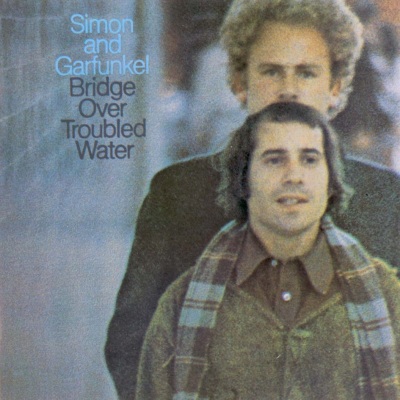
Bridge Over Troubled Water
Simon和Garfunkel两位老前辈是史上最强的二人演唱组合,是民谣音乐的集大成者。这张专辑是他们作为组合推出的第五张,也是最后一张专辑,他们的音乐理念在这张专辑的制作过程中已经有了激烈的冲突,并最终导致了二人的分道扬镳。 有趣的是,一个组合或乐队因为理念不同而散伙之前的最后一张专辑往往都是非常有价值的,或许因为成员只有当在某个方向的音乐实践达到相当水平之后才会产生理念冲突,当两个人水平都很高,而方向差距太大的时候就只能散伙了。 这张专辑的同名歌曲Bridge Over Troubled Water华丽无比,是他们最优秀的作品之一,然而Simon无法接受Garfunkel把这首歌弄成巴赫式的合唱的想法,拒绝给Garfunkel配和声,所以我们现在听到的是个独唱版本。而Garfunkel也对Simon尝试南美风格的歌曲感到忍无可忍,并枪毙了一首"Cuba Si, Nixon No," 而没有毙掉的那首就是大名鼎鼎的El Condor Pasa,恰恰也是Simon最优秀的作品之一。两个天才无法调和的矛盾暂时妥协的结果,就是这张伟大的专辑。 事隔若干年之后,Garfunkel仍然对Simon没有和他合唱Bridge Over Troubled Water而耿耿于怀,而Simon也亲口对滚石杂志的记者说,“很多次我都后悔没有那么做(And many times I'm sorry I didn't do it)。”虽然两个人的合作留下了遗憾,但这丝毫不影响他们作为世上最强二人组的地位。 这张专辑在滚石杂志选出的500张历代最强专辑中排名第51位。 Bridge Over Troubled Water was one of the biggest-selling albums of its decade, and it hasn't fallen too far down on the list in years since. Apart from the gospel-flavored title track, which took some evolution to get to what it finally became, however, much of Bridge Over Troubled Water also constitutes a stepping back from the music that Simon & Garfunkel had made on Bookends -- this was mostly because the creative partnership that had formed the body and the motivation for the duo's four prior albums literally consumed itself in the making of Bridge Over Troubled Water. The overall effect was perhaps the most delicately textured album to close out the 1960s from any major rock act. Bridge Over Troubled Water, at its most ambitious and bold, on its title track, was a quietly reassuring album; at other times, it was personal yet soothing; and at other times, it was just plain fun. The public in 1970 -- a very unsettled time politically, socially, and culturally -- embraced it; and whatever mood they captured, the songs matched the standard of craftsmanship that had been established on the duo's two prior albums. Between the record's overall quality and its four hits, the album held the number one position for two and a half months and spent years on the charts, racking up sales in excess of five million copies. The irony was that for all of the record's and the music's appeal, the duo's partnership ended in the course of creating and completing the album.
